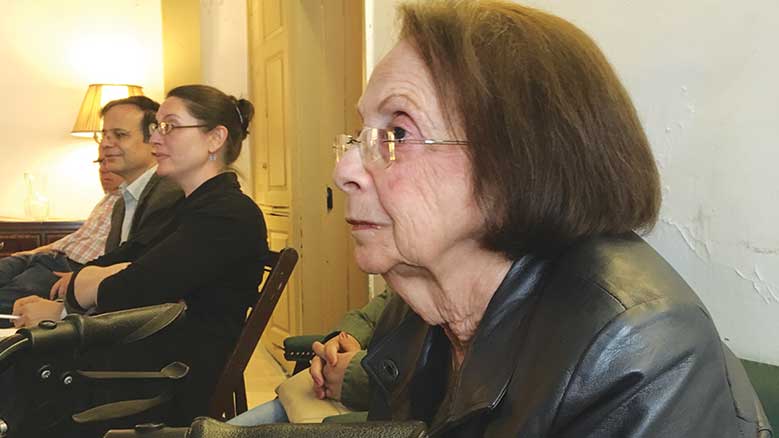I believe that it is contrary to the basic tenets of our Religious Society to take people to court over a civil disagreement. The founding of the Religious Society of Friends was long before our current litigious patterns developed. However, George Fox is quoted in Meeting House and Counting House as saying, "Away with those lawyers, twenty shilling Counselors, thirty shilling Sergeants, ten groat Attorneys that will throw men into prison for a thing of naught."
In several current Books of Discipline there is the advice to settle differences among Friends by mediation and, if failing, by arbitration. (See Faith and Practice of Philadelphia Yearly Meeting, 1955, p. 90). Since Friends have a long-standing testimony regarding equality of the races and cooperation among people of various religious persuasions, it would seem logical to extend this advice about mediation and arbitration to the Presbyterians, the Hindus, and whomever.
Some look to the Bible for guidance. Matthew says, "If your brother sins against you, go and tell him his fault, between you and him alone. If he listens to you, you have gained your brother. But if he does not listen, take one or two others along with you, that every word may be confirmed by the evidence of two or three witnesses." (Matt. 18:15-16, RSV.) That is mediation that is a voluntary, nonbinding effort at conciliation. Arbitration is binding and enforceable in court.
In business today there is a significant trend away from adversarial relationships between customers and suppliers. Partnerships make for a much more profitable relationship as well as being a lot more fun.
All contracts entered into by Universal Woods have a compulsory arbitration clause that includes a prohibition against going to court. Its president, Paul Neumann, is a member of our meeting and a well-seasoned, birthright Friend. He negotiated a joint venture that includes the following clause: "Any disputes arising from the joint relationship that cannot be resolved between the two parties shall first be addressed with mediation. If these issues cannot be resolved with mediation, they will then be submitted to binding arbitration without the presence of attorneys. It is agreed that the two parties will meet on a quarterly basis to review performance and progress of this agreement."
The last sentence is particularly germane. By communication we avoid disagreements in the first place.
We need lawyers to interpret the law for us. I frequently team-teach with a lawyer for whom I have great respect. He likes the arbitration clause and is trying to get his clients to use it. It is not always an easy sell. He recognizes the waste of protracted controversy for his clients. Unfortunately, too many lawyers are not so conscientious. After all, they bill by the hour. The longer the case, the more they make.
While litigation is not war, it has one thing in common with war: both tend to obstruct the kind of egalitarian justice that takes away the occasion for war. Huge damage claims must be paid for by the system. A working person pays an extra five percent for a cutting tool to pay for damage claims from users being cut by tools. (This was the cost of product liability insurance when I was CEO of Vermont American Corporation.) We pay at least that much more to cover claims in health care. These costs bear a heavy burden on the working poor.
I am not clear why this historic testimony has come into disuse. When I talk about it among Friends, I find many are even surprised that there ever was such a testimony. Even when my disagreement is not with another Quaker, it is frequently possible to sit down and have a little Friends-style meeting where we express our differences and use silence to achieve understanding. When possible, it is wonderful and fun. God is there.



